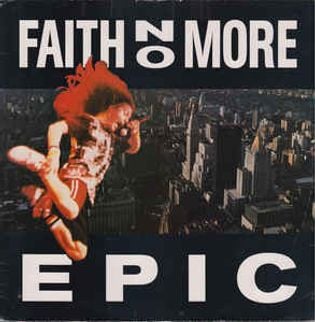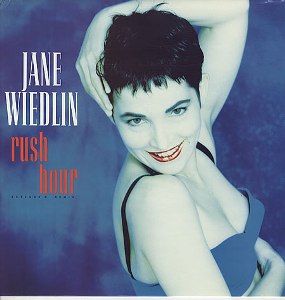 Eddie Money’s “Take Me Home Tonight,” released in 1986, is a quintessential anthem of 1980s rock-pop, combining infectious energy, soaring choruses, and a nostalgic sensibility that continues to resonate with fans decades later. From the first electrifying notes of the guitar and synth-driven instrumentation to Money’s signature gravelly yet emotive vocal delivery, the song captures the thrill of youthful longing, romance, and the magic of night-time adventure. Co-written by Eddie Money, guitarist and producer Bill Mason, and others, the track fuses rock, pop, and a hint of glam, creating a sound that epitomized mid-80s radio while retaining an emotional core. Its storytelling lyricism, coupled with an instantly memorable hook, made it one of Money’s defining hits and a standout moment in his career, cementing his place among the era’s most beloved rock voices.
Eddie Money’s “Take Me Home Tonight,” released in 1986, is a quintessential anthem of 1980s rock-pop, combining infectious energy, soaring choruses, and a nostalgic sensibility that continues to resonate with fans decades later. From the first electrifying notes of the guitar and synth-driven instrumentation to Money’s signature gravelly yet emotive vocal delivery, the song captures the thrill of youthful longing, romance, and the magic of night-time adventure. Co-written by Eddie Money, guitarist and producer Bill Mason, and others, the track fuses rock, pop, and a hint of glam, creating a sound that epitomized mid-80s radio while retaining an emotional core. Its storytelling lyricism, coupled with an instantly memorable hook, made it one of Money’s defining hits and a standout moment in his career, cementing his place among the era’s most beloved rock voices.
“Take Me Home Tonight” is more than just a catchy tune—it’s an encapsulation of a feeling. The song evokes the restless energy of young love, the thrill of a night out, and the anticipation of connection. The iconic chorus, punctuated by Ronnie Spector’s cameo, channels a sense of nostalgia and homage to the 1960s girl-group era, bridging the past with the contemporary pop-rock sound of the 1980s. This combination of narrative storytelling, musical craftsmanship, and cross-generational appeal ensures that “Take Me Home Tonight” endures not only as a radio staple but as an anthem of joy, desire, and memory for anyone who has ever experienced the electrifying pulse of romantic anticipation.
Instrumentation and Production
“Take Me Home Tonight” showcases the polished production style of mid-1980s rock, blending guitar riffs, synthesizers, and driving percussion into a cohesive and infectious sound. The track opens with a punchy, attention-grabbing guitar riff that immediately sets a mood of urgency and excitement. Synth layers provide a shimmering backdrop, enhancing the sense of movement and energy, while the bass and drum elements anchor the song’s rhythmic drive.
The production emphasizes clarity and power, ensuring that each element—vocals, guitar, synths, and backing harmonies—occupies a distinct space in the mix. This careful layering allows the song to feel both immediate and expansive, creating the sensation of a night out that is intimate yet exhilarating. The mid-tempo rock groove provides accessibility, making the song suitable for both radio play and live performance, while subtle shifts in instrumentation throughout the track maintain listener engagement and highlight key emotional moments.
Additionally, the production strategically incorporates dynamics to elevate the chorus, with anthemic builds that culminate in the unforgettable refrain. The mix balances Eddie Money’s voice with the instrumental layers, ensuring that his gravelly yet expressive timbre remains the emotional focal point while the music accentuates the song’s energy and narrative flow.
Lyrics of Desire and Nighttime Adventure
The lyrics of “Take Me Home Tonight” capture the essence of youthful desire, longing, and the exhilaration of a fleeting night. From the opening lines, the song establishes a narrative of yearning and urgency: the protagonist seeks connection, companionship, and the thrill of romantic pursuit. The song’s titular phrase—“Take me home tonight”—functions as both a literal and metaphorical plea, expressing the desire to escape, to be close to someone, and to fully experience the intensity of the moment.
Lyrically, the song balances playful flirtation with emotional sincerity. Lines like “Just like Ronnie sang” pay homage to the iconic voice of Ronnie Spector, whose guest appearance in the track further amplifies the song’s nostalgic and celebratory tone. This reference bridges the gap between musical generations, enriching the narrative by acknowledging the past while situating the song firmly in the 1980s. The storytelling is direct yet evocative, using imagery of night, longing, and motion to create a vivid emotional landscape that listeners can both hear and feel.
The song’s lyrics also highlight universal themes of anticipation, excitement, and the intensity of attraction. Whether interpreted as a romantic plea, a celebration of nightlife, or an ode to youthful adventure, “Take Me Home Tonight” resonates because it taps into experiences that are both specific and universally relatable. Its narrative immediacy, combined with evocative imagery, ensures that the song feels alive and immersive, inviting listeners to participate in the story emotionally.
Vocal Performance and Collaboration
Eddie Money’s vocal delivery on “Take Me Home Tonight” is a defining feature of the song’s enduring appeal. His gravelly, passionate voice conveys both urgency and sincerity, perfectly suited to the song’s themes of desire and excitement. Money effortlessly navigates the verses, infusing them with conversational intimacy, and then elevates the emotion during the chorus, creating a soaring, anthemic moment that remains instantly recognizable.
The addition of Ronnie Spector’s vocals on the chorus elevates the track to a new level of richness and historical resonance. Her iconic voice complements Money’s, adding a playful yet soulful layer that reinforces the song’s homage to 1960s pop while enhancing the emotional intensity. This duet creates a dynamic interplay between voices, making the chorus a standout moment that is as emotionally compelling as it is musically memorable. The collaboration highlights Money’s ability to blend contemporary rock-pop sensibilities with classic vocal traditions, creating a timeless quality that bridges eras.
Cultural Context and Reception
Upon its release in 1986, “Take Me Home Tonight” achieved significant commercial success, reaching the top ten on the Billboard Hot 100 and becoming one of Eddie Money’s most recognizable hits. Its chart performance reflected both the strength of its composition and its broad appeal across radio formats, from pop to rock. The song’s energetic yet emotionally resonant approach allowed it to connect with a wide audience, appealing to both younger listeners seeking danceable rock-pop and older fans drawn to its nostalgic references.
The song also solidified Eddie Money’s status as a versatile performer capable of combining rock swagger with pop accessibility. “Take Me Home Tonight” became a staple in his live performances, eliciting enthusiastic responses from audiences who could sing along to the memorable chorus and feel the emotional urgency of the narrative. Its success cemented the track as a defining moment in Money’s career and a highlight of 1980s popular music.
Legacy and Enduring Appeal
Decades after its release, “Take Me Home Tonight” remains a staple of classic rock and 1980s pop playlists, a testament to its infectious energy and enduring emotional resonance. The song’s blend of narrative storytelling, polished production, and vocal charisma ensures its continued relevance, allowing it to captivate new generations while maintaining its appeal for fans who experienced it firsthand in the 1980s.
The track’s enduring appeal lies in its ability to evoke both nostalgia and immediacy. It transports listeners to a particular moment—whether an imagined night out, a first crush, or the exhilaration of youth—while retaining a universal quality that makes its themes accessible across time and context. Its memorable chorus, iconic guitar riffs, and celebratory energy continue to inspire covers, references, and inclusion in film and television, cementing its place as a cultural touchstone.
Moreover, the song demonstrates the power of collaboration and homage in popular music. By integrating Ronnie Spector’s legendary vocals and referencing the musical past, “Take Me Home Tonight” situates itself within a broader continuum of rock and pop history, bridging generations while creating something entirely contemporary and timeless.
Conclusion: A Nighttime Anthem of Desire
Eddie Money’s “Take Me Home Tonight,” released in 1986, stands as one of the quintessential rock-pop anthems of the 1980s. Its infectious melody, powerful vocal performances, and evocative lyrics combine to create a song that captures the thrill of desire, the magic of night-time adventure, and the universal longing for connection. With polished instrumentation, memorable hooks, and the iconic inclusion of Ronnie Spector, the track transcends its era, remaining a beloved and instantly recognizable piece of musical history.
The song’s enduring power lies in its emotional immediacy and its ability to balance fun, nostalgia, and heartfelt expression. “Take Me Home Tonight” is not merely a pop-rock hit—it is an anthem for the exhilaration of youth, the intensity of attraction, and the unforgettable moments that define our personal narratives. Its combination of musical craftsmanship, vocal charisma, and timeless themes ensures that Eddie Money’s classic will continue to resonate, inspiring listeners to feel, sing, and relive the excitement of a night they will never forget.


